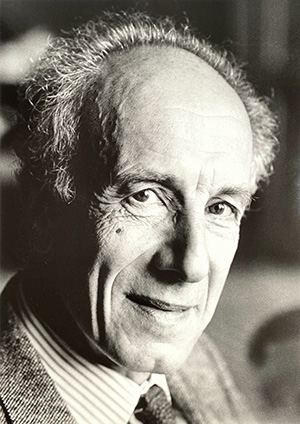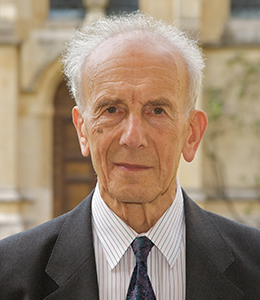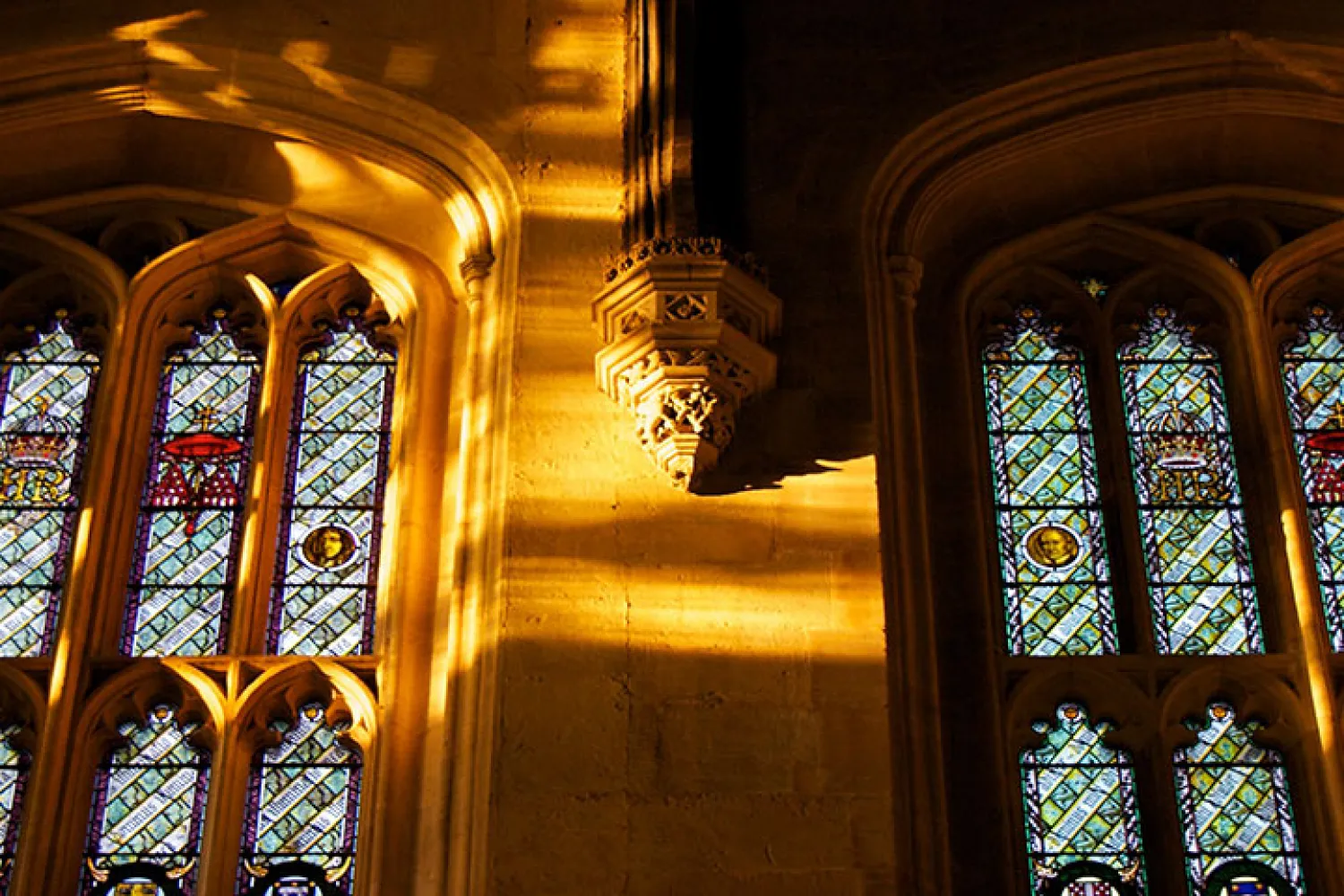Breadcrumb
Professor Peter Pulzer: an obituary
by Professor Jonathan Wright
Peter Pulzer was a Lecturer in Politics at Christ Church and Magdalen from 1957 to 1962 and an Official Student and Tutor from 1962 to 1984. He was then elected to the Gladstone Professorship of Government at All Souls, which he held until his retirement in 1996.
 He will be remembered with respect and affection by those he taught for PPE and Modern History, many of whom attended the retirement dinner in his honour in Christ Church Hall in 1984, and also by the large company of graduate students whom he supervised or who came to him for advice. He was a wise colleague and friend, a distinguished historian and political scientist, and someone who survived the painful experience of persecution and emigration as a child, without lasting bitterness.
He will be remembered with respect and affection by those he taught for PPE and Modern History, many of whom attended the retirement dinner in his honour in Christ Church Hall in 1984, and also by the large company of graduate students whom he supervised or who came to him for advice. He was a wise colleague and friend, a distinguished historian and political scientist, and someone who survived the painful experience of persecution and emigration as a child, without lasting bitterness.
His first major publication, The Rise of Political Anti-Semitism in Germany and Austria, appeared in 1964 at a time when this was still a new subject for research. Peter was interested in the ways in which the major social and political developments in the nineteenth century, industrialization, nationalism, liberalism and socialism interacted with the complex culture and class structure of theJewish communities, religious and secular. Why was Jewish assimilation into German and Austrian citizenship problematic? In the same period, the nature of political parties changed from the local associations of civic notables to the mass politics of the twentieth century, and the nature of political anti-Semitism changed from the discrimination against Jews ractised by conservatives to the pseudoscientific racialism with the threat of elimination of the modern era. The originality of the book lay in its study of the complex interaction of German and Jewish histories, rather than one or the other. This book was followed by further publications in the same area. and was reissued in a revised edition in 1988, making Peter one of the pre-eminent historians of the subject.
As Politics tutor and later Gladstone Professor, Peter also contributed to the wider study of German history and the politics of the Federal Republic (and Austria) and British electoral politics, in books, academic journals and newspapers. His writing was always characterised by its simplicity and directness, which was also what made him such a good tutor. In his best-selling textbook Political Representation and Elections in Britain (1967), he boldly asserted that `Class is the basis of British party politics. All else is embellishment and detail’. This became a staple subject of tutorial essays, and was even once set as a question in the Final Honour School, leading Peter to comment waspishly that it was the only sentence anyone remembered. So popular was the book that he sometimes heard sections of it being read back to him, unattributed, in tutorial essays – on one such occasion he reached down the volume from his shelves saying ‘I can go on from here’.
 As a graduate teacher he was unusual, if not unique, in teaching for all three M.Phil. degrees in Politics – those in International Relations, in Politics, and the one of which he was the architect, European Politics – a formidable range, but one which he found quite natural. He also took his public duties seriously. He was the leading spokesman in Congregation against the award of an honorary degree to Margaret Thatcher in 1985, as a protest against the cuts in funding to universities, and the proposal was rejected by a large majority.
As a graduate teacher he was unusual, if not unique, in teaching for all three M.Phil. degrees in Politics – those in International Relations, in Politics, and the one of which he was the architect, European Politics – a formidable range, but one which he found quite natural. He also took his public duties seriously. He was the leading spokesman in Congregation against the award of an honorary degree to Margaret Thatcher in 1985, as a protest against the cuts in funding to universities, and the proposal was rejected by a large majority.
His career and his distinction were the more remarkable when one considers that he was born in Vienna, his family home was ransacked by Nazi thugs in November 1938 and, after being evicted, the Pulzers emigrated to Britain in February 1939, sponsored by the family of a retired Anglican clergyman, to whom he always remained grateful as `they saved my life’. Aged 9, he embarked on a crash course in English. From grammar school he went to King’s College Cambridge, where his tutors included Noel Annan; he gained a first in both parts of the History tripos. Then came graduate study with Hugh Seton-Watson before teaching posts in Oxford. That makes it sound easy and indeed Peter became English as well as Anglophile. Nevertheless, the adjustment cannot have been straightforward. When he suffered slights, he learned not to show it.
On Christ Church Governing Body, his was a humane and liberal presence. His interests in Central Europe, scholarly, literary and also musical and operatic remained constant throughout his life. He was honoured by both the Federal Republic of Germany and the Austrian Republic and received an honorary degree from the University of Vienna. But, as he acknowledged in an autobiographical essay, he would not want to live in Central Europe - `there are too many ghosts’. Members of his family who perished are among those recorded in paving stones in Vienna and Peter returned in old age to be present at the commemoration ceremony. As he concluded the autobiographical essay: 'I know where my roots are, but I also know where my home is. I do not want to change either of them’.

